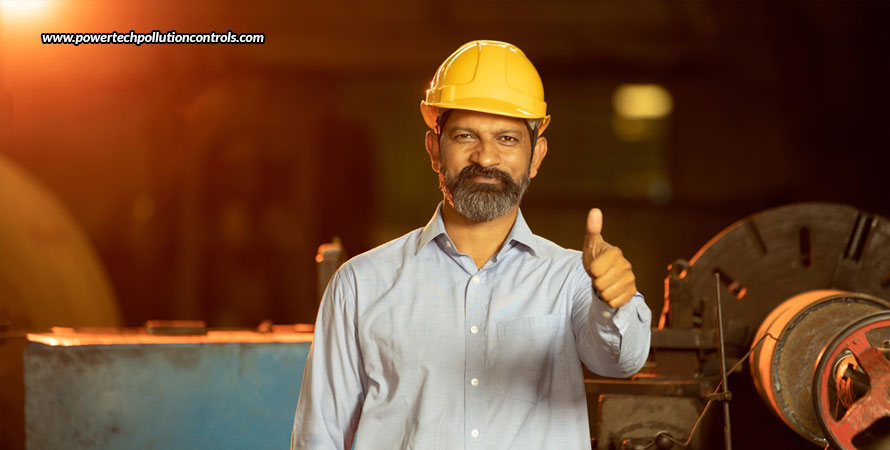
Choosing To Have Clean Air In Your Workplace – A Crucial Choice
Poor air quality – A term that makes you think of clogged roads, smoggy cities, and chimneys spewing smoke – some external environment you’d probably want to stay away from. Right? However, poor air quality is not limited to only these external factors; it can also be a major issue in enclosed spaces. Dust and fume particulates in numerous factories, workshops, and other industrial facilities endanger both the workers and the overall production process. However, even in difficult industrial conditions, there are clever, simple, and effective techniques to prevent these risks and guarantee clean air.
Poor air quality – A threat to human health
Nine out of ten people on the planet reside in places where particulate concentrations, which are made up of different fine airborne particles, exceed the World Health Organization health recommendations. Air pollution is severe and has detrimental effects on human health. According to the World Health Organization, exposure to such polluting particles causes over 7 million fatalities every year, the most of which are caused by conditions including lung cancer, stroke, heart disease, and respiratory infections like pneumonia.
Clean air – A necessity, not a luxury
Since everyone is aware that breathing clean air is essential to living a healthy life and maintaining a healthy environment, clean air is one of the necessities that cannot be neglected. So, when we demand clean air everywhere – in our home, at a hotel, at a restaurant, at the airport, and anywhere else, why should we demand or expect anything less from the air we breathe at work? After all, clean and safe environments in the workplace result in a healthier workforce, less maintenance, increased productivity, and better product quality. The advantages are numerous and obvious.
What makes air in the workplace dangerous?
Grinding, milling, cutting, hardening, turning, soldering, and welding are just a few of the frequent industrial processes that produce dust, powder, and aerosols like fumes, mist, and smoke. These particles are easily airborne, move quickly, and can therefore be inhaled. Additionally, they have the ability to quickly disperse throughout the factory or workshop, eventually resting on surfaces and inside of gear, clothing, ventilation ducts, and other items. However, traditional heavy industry is not the only sector where particles are an issue. Bakeries, cosmetics, paint, salons, chemistry labs, and 3D printing studios are just a few examples of industries where these problems occur.
Eliminating the danger
Businesses seek to concentrate on their core competencies and output. They are rarely knowledgeable about filters, extraction machinery, or other clean air products. But, with the correct solutions in place, there is no need to worry about anything. In workplaces where hazardous particulates produce and spread easily, effective dust and fume extraction equipment makes a big impact. For instance, using the Fumekiller from Powertech Pollution Controls, can significantly improve the quality of air in the workplace, using its high-efficiency two-stage electrostatic precipitator with electrostatic filtration technology, to capture and control fumes, mist, smoke, and fine dust produced by welding, soldering, and other similar processes. With its unique features, and integrated safety measures like motor protection, limit switches, and high voltage fault trip circuitry, this welding fume extractor helps to create a workplace that is safer and healthier.


